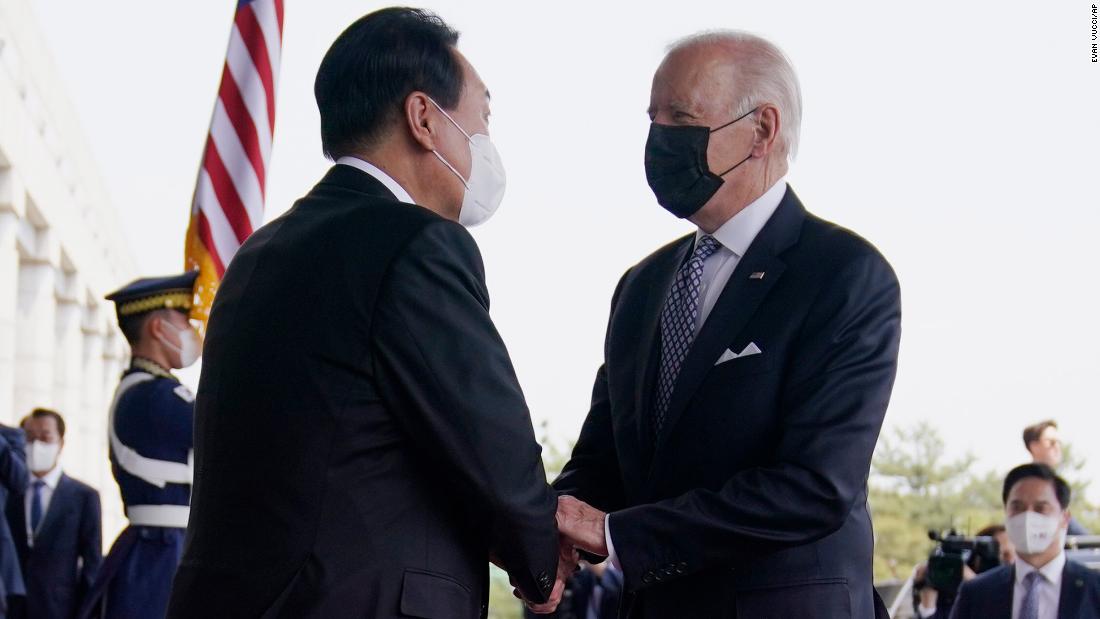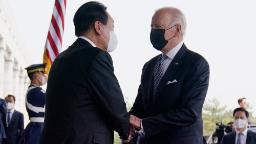

Biden plans to observe a joint airspace control center where members of the US and South Korean militaries work alongside each other to monitor airspace made tense by North Korea’s intensifying missile tests.
Earlier in the day, the President is expected to meet with Hyundai Motor Group Chairman Chung Euisun in Seoul, where he’ll highlight $11 billion in new investments from the Korean automaker, including $5.5 billion to open a new electric vehicle factory in Savannah, Georgia.
A day earlier, Biden and his South Korean counterpart, President Yoon Suk Yeol, wrote in a joint statement they were open to expanding joint military drills that Biden’s predecessor scaled back, believing them too costly and provocative. Biden said cooperation between the two countries demonstrated “our readiness to take on all threats together.”
The expanded military exercises will be aimed at ensuring “what it takes to best ensure military readiness and best ensure our ability to work closely together,” a senior administration official said Sunday, though declined to offer a timeline or guidance on the scope of the expanded drills.
“Mr. President, your country’s democracy shows the power to be able to deliver for its people,” Biden told Yoon during a toast at the start of a state dinner on Saturday evening. “We’re proud to say, the generals with me today can say as well, that our armed forces stand side by side, standing on a peninsula for seven decades to preserve the peace and make possible that shared prosperity.”
He was likely to take a similar message to Japan, which also hosts a sizable population of American service members and maintains a mutual defense treaty with the United States. Increased provocations from North Korea and territorial grabs by China have caused deep concern in the country, which has looked to the US for assurances about its security.
Biden is expected to call on Emperor Naruhito at his imperial palace before meeting Monday with Prime Minister Fumio Kishida, who took office last fall. Later, he’ll unveil the outlines of a trade plan for Asia that officials hope can generate wide support. And he’ll conclude his visit with a summit of the Quad collective — comprised of the United States, Japan, India and Australia — that is widely seen as an attempt to counter China’s military and economic ambitions.
Biden has sought on his trip to link the parallel sets of economic and security issues that have emerged in his discussions with leaders. His trade outline, viewed as a scaled-down alternative to the Trans Pacific Partnership trade pact scrapped by his predecessor, is expected to place heavy emphasis on resilient supply chains decoupled from Chinese parts — a message he conveyed at multiple points in Seoul.
Biden told reporters in Seoul on Saturday “it’s critically important” the US, South Korea and Japan have a “very close trilateral relationship.”
He said the current state of the world, where autocratic regimes like China and Russia have challenged democratic norms, demands the rest of the world stick together, despite lingering differences.
“Things have changed,” Biden said during his news conference. “There’s a sense among the democracies in the Pacific that there’s a need to cooperate much more closely, not just militarily but also economically and politically.”